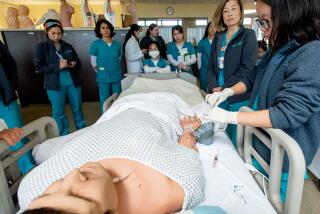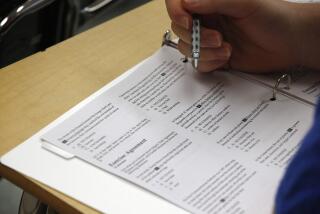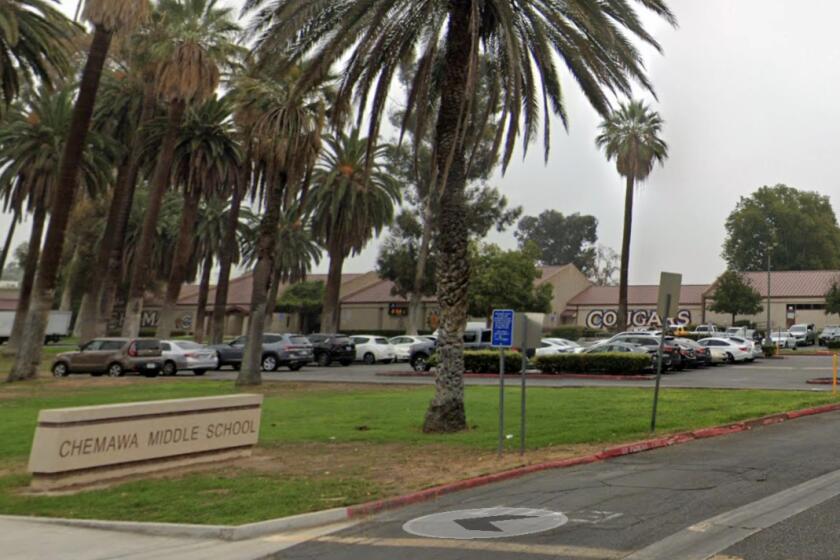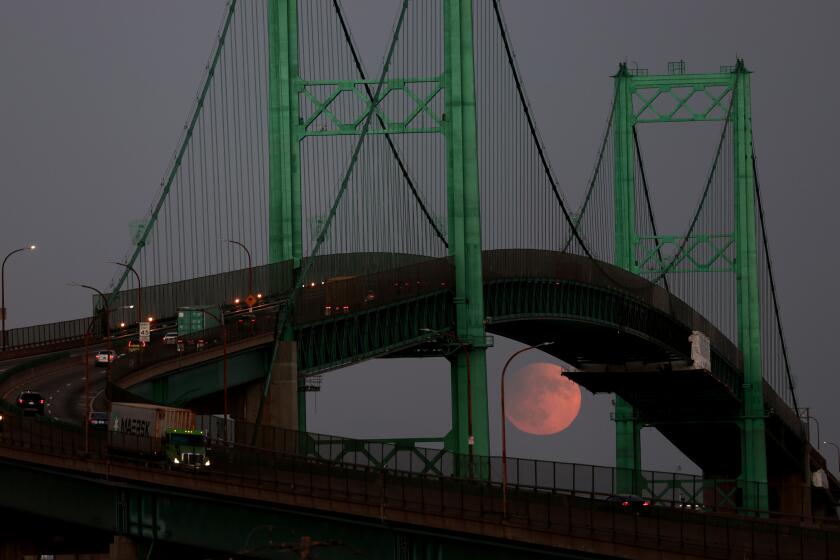If it’s Tuesday, this must be Berkeley: My family’s weird COVID-era college tour
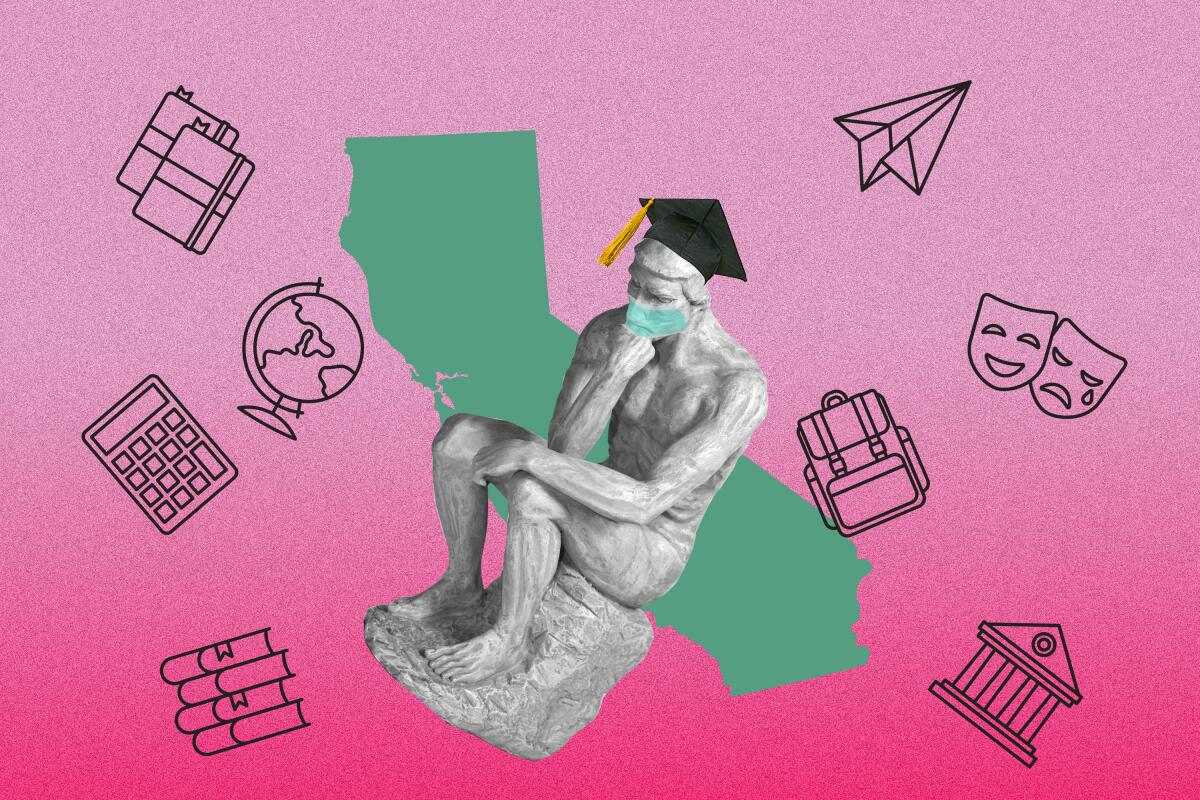
Even in the best of times, a college-tour road trip feels like gambling with your nest egg. On every campus, you and your kid half-listen to the guide, scan the sky for portents and tell yourselves that you have an edge. Or that nobody does.
So what are those trips like now, with COVID still afoot, campuses deserted, tours canceled and admissions policies in flux across the land? I can tell you, because on April 5, after a year of canceled trips and virtual 11th grade, my family set off to see some colleges.
In the course of a 1,100-mile spring break journey, we drove and traipsed our way through 11 California campuses, often tiptoeing on the fringe of forbidden territory. It was a marathon, without the cheering masses.
We hit the road on a Monday — my wife, Mary Frances; me; and our 16-year-old, a.k.a. the Applicant, whose first college application deadlines are in the fall.
Because Mary Frances and I are over 50 and the Applicant works as an aide with young students, we all had one vaccine shot under our belts. Still, we stayed masked when we weren’t eating or in the car, and we resolved to keep our distance from others. This was easy, especially at first.
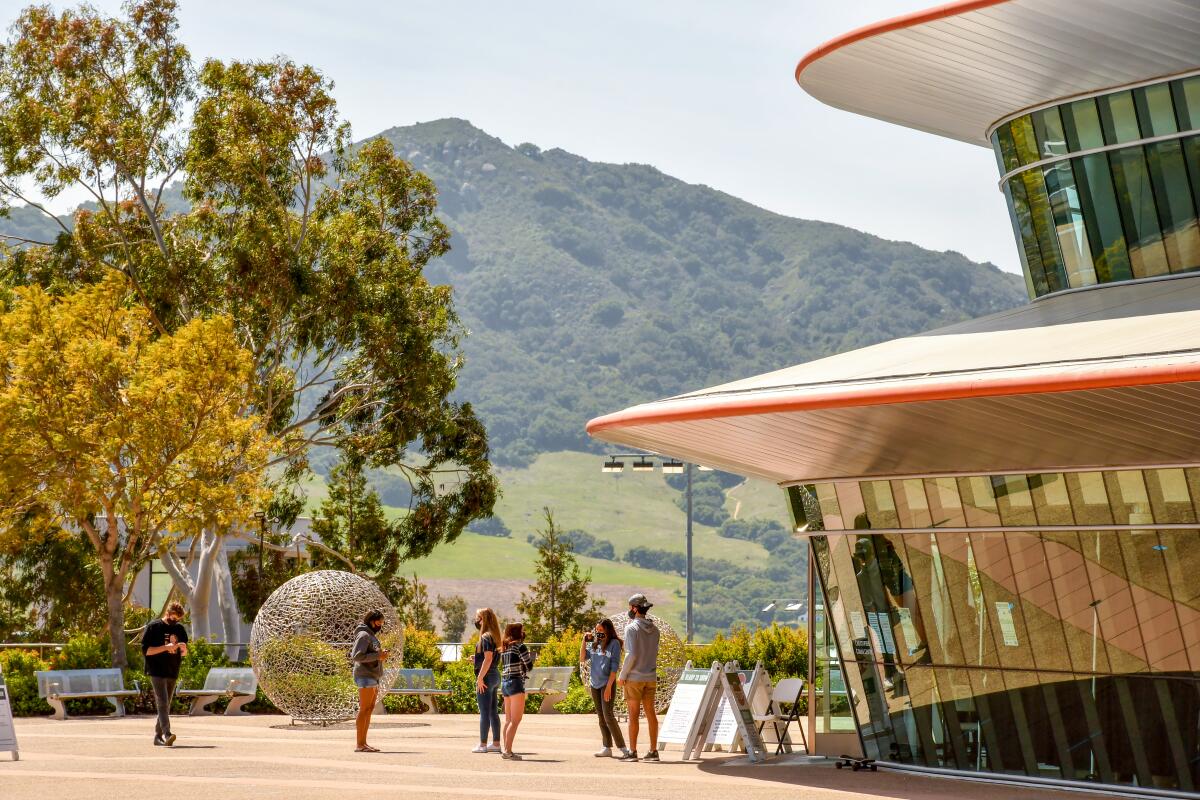
We began with one of the state’s youngest campuses: Cal State University Channel Islands, founded in 2002 on the grounds of the former Camarillo State Mental Hospital in Ventura County.
It was a gorgeous campus, with splendidly preserved and updated Mission Revival buildings, but so empty and quiet you could hear the wind rustling palm fronds from 100 yards off.
Too quiet. Nearby a notice warned that access was “restricted to authorized persons only.”
What to do? We asked a campus security officer for directions to the bookstore, bought a pen and notepad, strolled past a dry fountain, a dolphin sculpture and the vast, locked library, then did the rest of our inspection by car.
We read several warnings like the one at Cal State Channel Islands over the following days and may have overlooked one or two others.
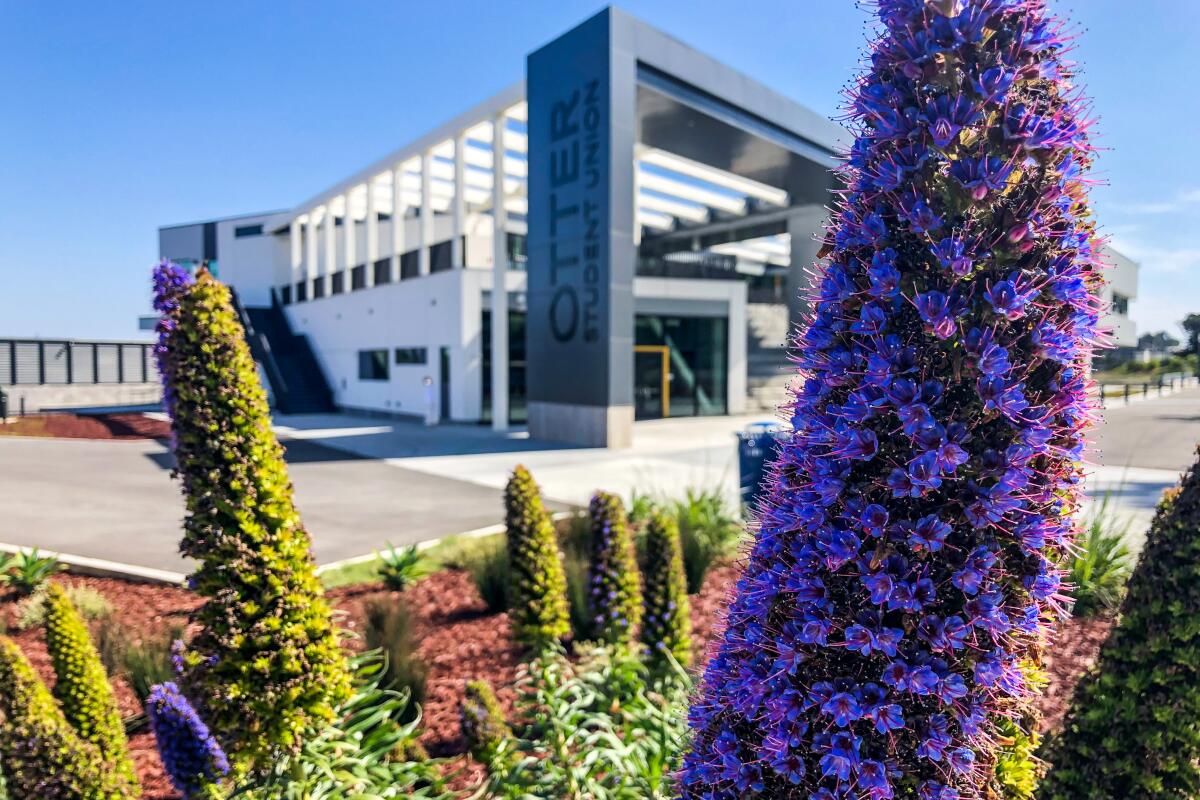
Though residence halls were beginning to repopulate at Cal Poly San Luis Obispo, UC Santa Cruz and elsewhere (with extensive COVID testing programs), most UC and Cal State students were still studying remotely.
None of the campuses I checked (except tiny Westmont College) had resumed on-site tours. They all have virtual offerings, so anyone considering a college trip this summer should check campus websites and social media accounts carefully and repeatedly.
Apart from their COVID testing sites, every college seemed either asleep or just waking up. And at just about every one, we’d spot a family or two like ours, furtively crossing a quad, stocking up on merch, steering clear of security.
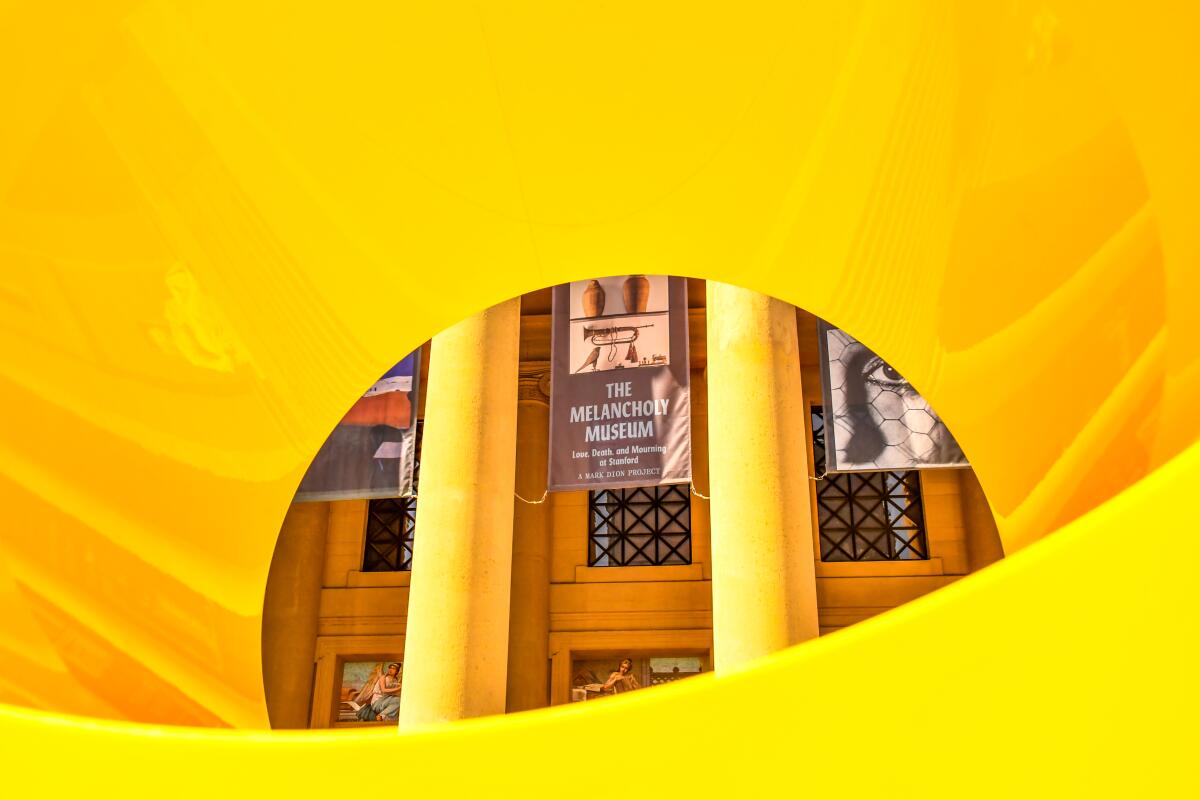
Though five of the 11 campus bookstores were closed, we’d often find students scattered on the nearby lawn (UC Santa Barbara, for example) or staging cap-and-gown graduation photos (UC Merced and Cal State Fresno). If the store was open, we pounced, because they’d usually be staffed by friendly undergrads (UC Davis and Cal Poly San Luis Obispo).
Either on campus grounds or neighboring streets, we’d find undergrads, alumni, staff, faculty or friends to tell us things (UC Davis, Stanford and UC Santa Cruz, for instance).
Thanks to a few hours of advance work (and sites such as College Navigator and niche.com, which gather and organize data that many schools conceal behind websites), we had a spreadsheet showing every school’s undergrad enrollment, last year’s admission rates, typical GPAs and test results for those admitted, tuition and fees, and financial aid details.
And thanks to my memories of Cal State Fresno and Mary Frances’ of UC Santa Cruz, the Applicant had all the anecdotes a teenager could stand.
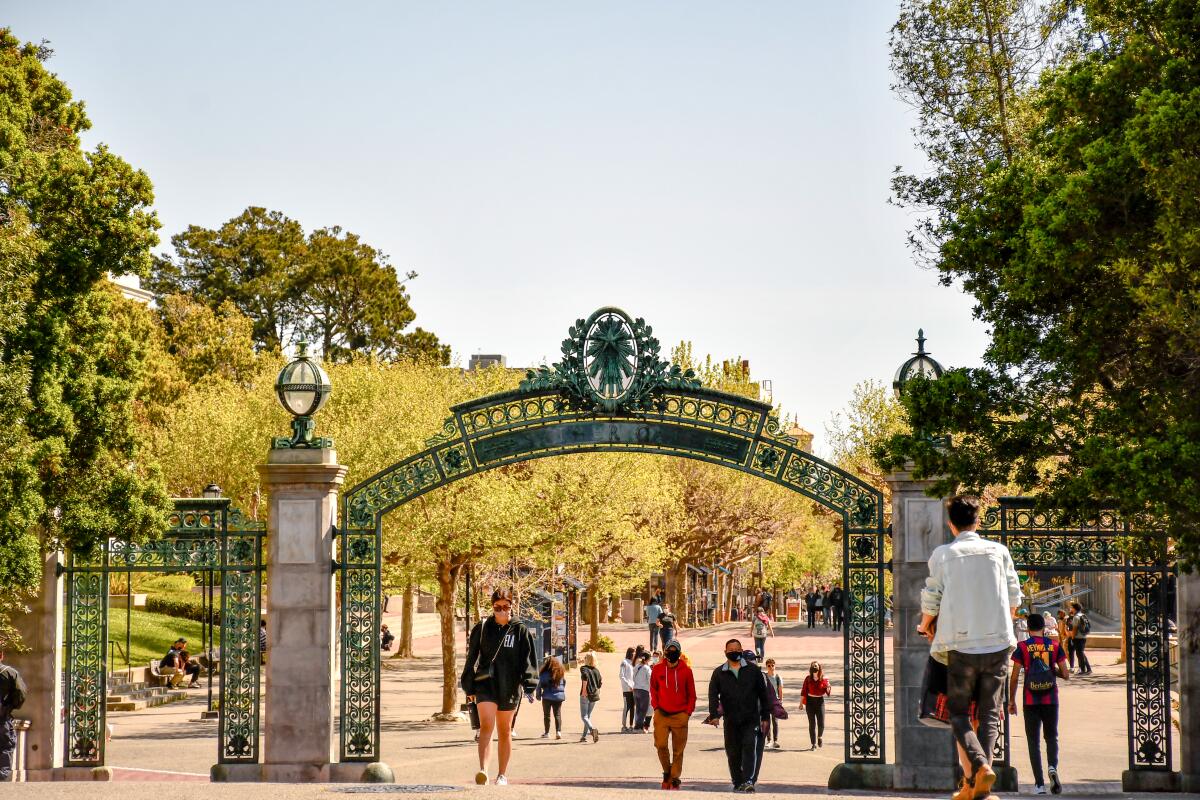
As we continued north, the campuses seemed to get busier — a bit less Edward Hopper, a bit more David Hockney — perhaps because spring break was winding down or because restrictions were loosening throughout the state.
Yet we found easy parking at each campus.
I have to type that again. Easy parking. Frequently free. Also, because we had no official appointments or tours, we could show up when we chose, glean what mattered and bail when we saw fit.
Day by day, the Applicant got bolder about roaming, asking questions, thinking aloud. Assumptions fell. Discoveries arose. Shapes replaced abstraction.
“Reminds me of an Italian villa,” said the Applicant, appraising Westmont College in Montecito.
At Stanford, we marveled at the uniform architecture and grass, no blade out of place. At Berkeley (“Closed to Visitors,” said a campus notice), we saw a lawn as disheveled as Boris Johnson in a headwind and joined the foot traffic between Telegraph Avenue and the school’s Sather Gate.
“I like how urban it is,” said the Applicant, a city kid.
Under the redwoods in Santa Cruz, a trio of deer drew within five feet of us. In San Luis Obispo, we misplaced the car for half an hour. In Davis, we admired the blend of bikes, town and gown.
By week’s end, we had covered about 27 campus miles on foot — a marathon indeed.
“Now we know where all the bathrooms are,” said the Applicant. We also have a substantially rearranged leaderboard.
Berkeley, which no longer seemed so daunting, moved up. So did my alma mater, Fresno.
Stanford, UC Santa Cruz and Cal Poly SLO held their positions.
UC Merced remained a dark horse, but we give that largely isolated campus credit: It was the only one to have devised and staffed a drive-through tour route.
Meanwhile, UC Santa Barbara and Westmont have slipped a few notches. For the moment.
Despite the many limits and few people, this turned out to be a priceless excursion, a chance to examine our expectations and compare notes on diversity and privilege, among other things. By mid-June, as the reopening continues, trips like this will be even more rewarding.
Of course, we can’t guess which school or schools will reciprocate the Applicant’s affections. One of those we just saw? Someplace farther south or out of state? A community college?
To complicate matters, the University of California and many elite private colleges have decided to pay less attention to SAT and ACT scores, setting off a historic surge in freshman applications, followed, of course, by a surge in rejections that reached many 12th graders just as we were planning our great adventure.
Meanwhile, hundreds of private schools, Cal State campuses and community colleges are angling to snag students searching for a match.
As for our Applicant, who knows? Whatever comes, we’ll always have this strange spring and those 1,127 miles.
More to Read
Sign up for The Wild
We’ll help you find the best places to hike, bike and run, as well as the perfect silent spots for meditation and yoga.
You may occasionally receive promotional content from the Los Angeles Times.

